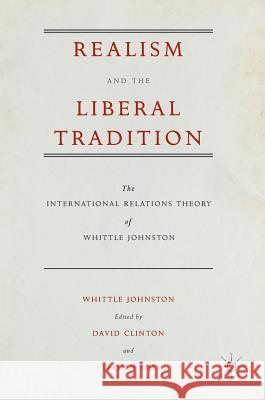Realism and the Liberal Tradition: The International Relations Theory of Whittle Johnston » książka
topmenu
Realism and the Liberal Tradition: The International Relations Theory of Whittle Johnston
ISBN-13: 9781137577634 / Angielski / Twarda / 2016 / 288 str.
Realism and the Liberal Tradition: The International Relations Theory of Whittle Johnston
ISBN-13: 9781137577634 / Angielski / Twarda / 2016 / 288 str.
cena 194,97 zł
(netto: 185,69 VAT: 5%)
Najniższa cena z 30 dni: 192,74 zł
(netto: 185,69 VAT: 5%)
Najniższa cena z 30 dni: 192,74 zł
Termin realizacji zamówienia:
ok. 20 dni roboczych.
ok. 20 dni roboczych.
Darmowa dostawa!
Kategorie:
Kategorie BISAC:
Wydawca:
Palgrave MacMillan
Język:
Angielski
ISBN-13:
9781137577634
Rok wydania:
2016
Wydanie:
2016
Ilość stron:
288
Waga:
4.96 kg
Wymiary:
21.0 x 14.8
Oprawa:
Twarda
Wolumenów:
01
Dodatkowe informacje:
Bibliografia
Wydanie ilustrowane
Wydanie ilustrowane











